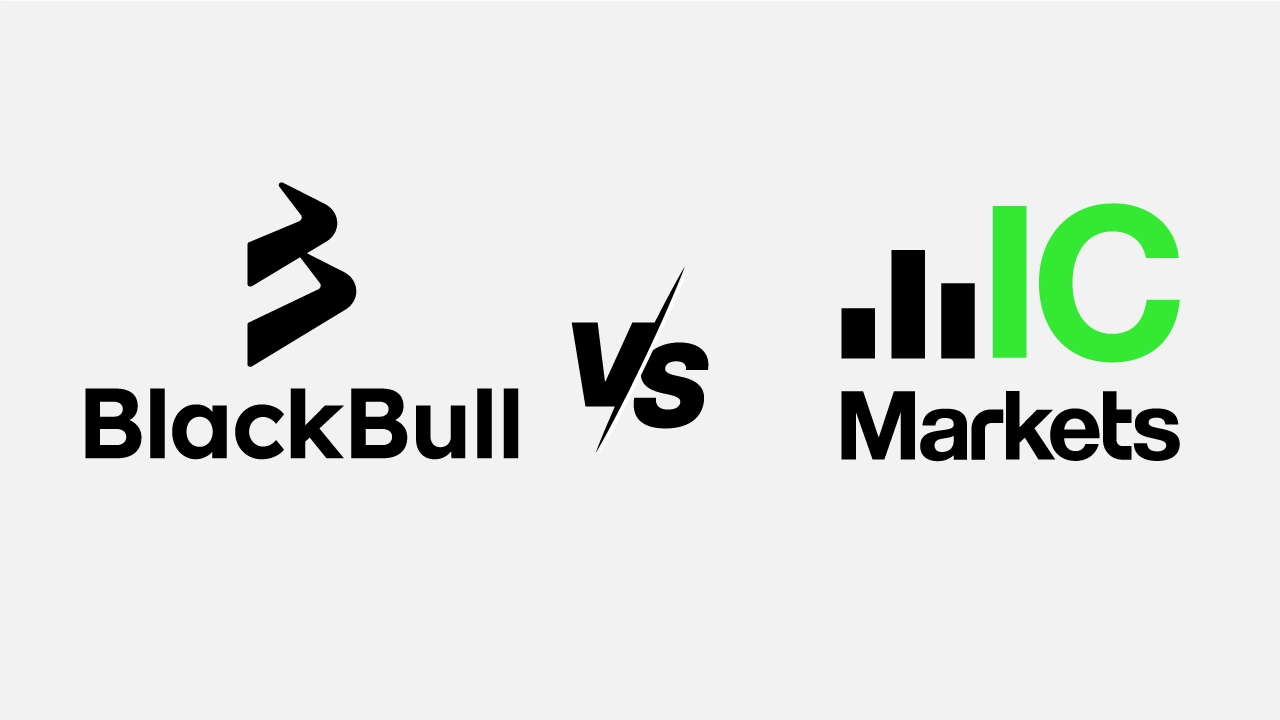Compare BlackBull Markets vs. IC Markets on regulation, platforms, fees, support, and leverage. Find the right forex broker for your trading strategy and needs.
Choosing the right forex and CFD broker is fundamental for traders who aim to enhance their trading performance while operating within a secure, efficient environment. BlackBull Markets and IC Markets are well-regarded names in the industry, each providing a distinct array of features tailored to various trading strategies. This detailed comparison evaluates critical aspects such as regulatory compliance, trading platforms, fee structures, account types, leverage options, customer support, and more, assisting you in finding the broker that best meets your trading goals.
Regulation and Security: BlackBull Markets vs. IC Markets
BlackBull Markets
BlackBull Markets operates under the regulation of two key financial authorities:
- Australian Securities and Investments Commission (ASIC): Globally recognized for its rigorous standards and dedication to investor protection.
- Financial Services Authority (FSA) in Seychelles: Oversees the broker's compliance with local laws, ensuring client security.
By adhering to stringent regulatory guidelines, BlackBull Markets provides a transparent and secure environment where client funds are kept in segregated accounts for added protection.
IC Markets
IC Markets is regulated by several top-tier financial regulators:
- ASIC: Ensures compliance with high standards of conduct and investor safeguards.
- Cyprus Securities and Exchange Commission (CySEC): Governs IC Markets’ operations within the EU, enforcing strict transparency and compliance.
- FSA Seychelles: Similar to BlackBull Markets, this authority regulates IC Markets, ensuring adherence to local financial regulations.
IC Markets’ multi-jurisdictional regulatory framework bolsters its reputation for reliability and transparency, ensuring robust security and compliance with international standards.
Conclusion
Both brokers prioritize client fund safety and regulatory compliance. IC Markets, with oversight from ASIC, CySEC, and FSA Seychelles, offers additional layers of protection, enhancing trust and credibility. BlackBull Markets, regulated by ASIC and the FSA, provides similar safeguards, making both brokers reliable options for secure trading.
Trading Platforms: A Comparative Overview
BlackBull Markets
BlackBull Markets offers a diverse selection of platforms to suit different trader preferences:
- MetaTrader 4 (MT4): A popular choice for its reliability and user-friendly features.
- MetaTrader 5 (MT5): An upgraded version of MT4, with additional timeframes and advanced trading tools.
- cTrader: Known for high customization, superior charting, and automated trading capabilities, ideal for traders using expert advisors (EAs).
These platforms support automated trading and various technical tools, making them suitable for both beginner and advanced traders.
IC Markets
IC Markets provides a comprehensive platform suite designed for high-performance trading:
- MetaTrader 4 (MT4): Offers a familiar and customizable trading environment.
- MetaTrader 5 (MT5): Provides advanced functionalities, including additional order types and analysis tools.
- cTrader: Favored for its fast execution speeds and advanced charting tools.
- WarpTrader (for FIX API clients): A proprietary platform designed for algorithmic trading, allowing seamless integration with automated systems.
IC Markets also offers API access for traders interested in developing and executing custom strategies.
Conclusion
Both brokers provide robust trading platforms, including MT4, MT5, and cTrader. IC Markets, however, offers an additional proprietary platform (WarpTrader) optimized for algorithmic trading, which may appeal to traders seeking advanced automation capabilities. BlackBull Markets’ support for cTrader, MT4, and MT5 ensures versatile functionality, making it a solid choice for a broad spectrum of traders.
Spreads and Fees: BlackBull Markets vs. IC Markets
Conclusion
IC Markets offers some of the tightest spreads in the industry, particularly on its Raw Spread accounts, making it ideal for scalpers and high-frequency traders. BlackBull Markets also offers competitive spread and commission options, appealing to traders seeking low-cost trading solutions. The decision may depend on whether traders prioritize ultra-tight spreads with commissions (IC Markets) or slightly broader flexibility (BlackBull Markets).
Account Types
BlackBull Markets
- Standard Account: Designed for beginners with competitive spreads and flexible leverage.
- Raw Spread Account: Suitable for experienced traders seeking low spreads with a small commission.
-
ECN Account: Tailored for professional and high-frequency traders, offering tight spreads and direct market access.
IC Markets
- Raw Spread Account (MT4/MT5): Ultra-low spreads starting from 0.0 pips with commissions, ideal for scalpers.
- Standard Account (MT4/MT5): A no-commission account with slightly higher spreads, suitable for straightforward trading.
- cTrader Raw Spread Account: Low spreads with commissions, similar to the MT4/MT5 raw accounts.
- VIP Account: Personalized services for high-volume traders.
-
Swap-Free Account: Islamic account options with no swap fees.
Conclusion
IC Markets provides a broader range of account options, including VIP and Swap-Free accounts, offering more flexibility for diverse trading needs. BlackBull Markets covers a range of trading styles with its three core accounts, making it a versatile option for both new and seasoned traders.
Leverage Comparison
Both brokers offer leverage of up to 1:500. Traders should use leverage carefully, as it can amplify both gains and losses. Both brokers provide comprehensive information and tools for managing risks associated with leverage.
Customer Support: Availability and Quality
IC Markets stands out with its 24/7 support availability, providing round-the-clock assistance. This is particularly beneficial for traders across various time zones. BlackBull Markets offers reliable 24/5 support, sufficient for most traders, but those requiring constant availability may prefer IC Markets.
Deposit and Withdrawal Options
IC Markets offers additional payment methods, including cryptocurrencies, providing more flexibility for traders. However, BlackBull Markets requires a lower minimum deposit, making it more accessible for those starting with smaller investments.
Conclusion
Both BlackBull Markets and IC Markets are strong contenders in the forex and CFD markets, each catering to different trader needs. BlackBull Markets shines with its robust educational resources and flexible account options, making it suitable for beginners and intermediate traders. On the other hand, IC Markets excels in offering tight spreads, rapid execution speeds, and advanced trading tools, appealing to experienced and high-frequency traders.
Evaluate your trading preferences, platform requirements, and customer support needs to choose the broker that best matches your objectives. Both brokers offer secure and regulated environments, ensuring a safe trading experience regardless of your choice.
Published by:
![]() Daniel Carter
Daniel Carter
